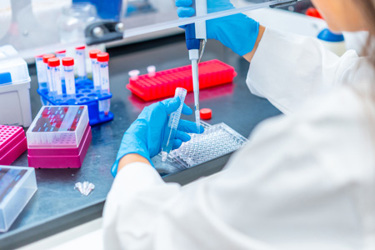Comparing Activation Methods To Yield Clinical-Scale Expansion Of Gamma Delta T Cells

Gamma delta T cells offer a unique approach to cancer immunotherapy due to their ability to directly recognize and kill tumor cells independently of HLA-antigen presentation. Unlike alpha beta T cells, they do not cause graft-versus-host disease, making them ideal candidates for adoptive cell therapy.
However, the low frequency of gamma delta T cells in peripheral blood has hindered their clinical development. To address this challenge, researchers have explored methods to expand these cells from PBMCs. This webinar compares two strategies for generating billions of gamma delta T cells.
The first method utilizes zoledronic acid to induce the expansion of Vd2+ T cells from cryopreserved PBMCs. The second approach involves either depleting alpha beta T cells or isolating gamma delta T cells before anti-CD3/anti-CD28 co-stimulation, resulting in the generation of both Vd1+ and Vd2+ T cell subsets.
Both methods effectively generate large quantities of gamma delta T cells with potent cytotoxicity against tumor cells and cytokine production. These findings suggest that these approaches could be valuable for developing clinical-grade gamma delta T cell therapies.
Get unlimited access to:
Enter your credentials below to log in. Not yet a member of Bioprocess Online? Subscribe today.
